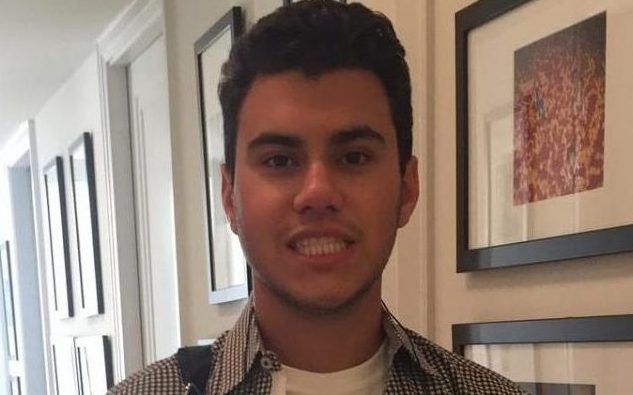Ramaz Holds Annual “Israel Night”

On November 12th, the Ramaz Upper School hosted its annual Israel Night for seniors who are considering taking a gap year in Israel after graduation. The night serves as an opportunity for students and parents to learn more about the benefits of the year and the options available. Students met personally with emissaries from over twenty yeshivot, seminaries, and secular programs located in Israel.
Historically, somewhere around half of Ramaz students spend a gap year in Israel. The year serves as an opportunity for outgoing students to continue learning Torah before they likely attend a secular college. Ramaz describes the importance of taking a gap year on the “Israel Advisement” page of its website. “The year in Israel can be a life-changing event, impacting one’s life in college and beyond,” the page reads. “It has become a mass movement which has literally changed the character and face of modern Orthodox Jewry and has transformed Jewish life on campus throughout the country. The Ramaz Upper School sees itself as a 5-year program, with the 5th year being spent in Israel.”
The night began with a brief introduction by Ms. Miriam Krupka, who has helped the school develop the Israel Guidance program since joining the Ramaz faculty. Ms. Krupka then invited Rabbi Chaim Steinmetz, Senior Rabbi at Congregation Kehilath Jesherun, to say a few words about the importance of taking a gap year. Rabbi Steinmetz summed-up the benefits of the gap year with “four P’s.” He stated that the year is (i) practical and healthy for students finishing four stressful years of high school, (ii) in accordance with the community’s priorities, (iii) a good way to ensure that students are prepared for the future, and (iv) a pragmatic approach towards achieving a happier existence. Rabbi Steinmetz also noted that taking a gap year has become increasingly popular among non-Jewish outgoing high school students, and that those who do are statistically more likely to be academically successful in college and beyond. Students generally had positive things to say about Rabbi Steinmetz’s presentation. Jacob Bengualid ’19 noted that “the Rabbi really explained the logic behind taking a gap year in general, and he made a pretty convincing case in defense of yeshiva.”
The evening continued in the auditorium, where students and parents were given the opportunity to visit boots with representatives from over 20 yeshivot, seminaries, and secular programs. Israeli cuisine was served for dinner, with students and parents grabbing plates of falafel before touring the room. The most popular booths of the evening seemed to be Yeshivat Orayta, Midreshet Amit, and Bar Ilan University, all of which are highly sought-after programs among Ramaz students.
Some students felt the organization of the “yeshiva-seminary fare” was lacking, noting that they weren’t given enough time to hear from as many schools as they would have preferred. Danya Jacobs ’19 said, “I had a plan to visit five schools, but because of the crowd at certain booths and because we only had an hour to explore the room, I could only visit two.”
After the fare, students and parents were directed to leave the auditorium and head towards their first session. As per the traditional layout of Israel Night, students were asked beforehand to register for two informational sessions of their choosing. These info sessions allowed students to get a more in-depth description of a particular school, and to show demonstrated interest. Students seemed to be more enthusiastic about the information sessions than the fare. One student, Yehuda Goldman ’19, stated that these two information sessions “were far more helpful than the club fair.” “Honestly, I thought the fair was a waste of time because each booth was basically saying the same thing,” said Goldman. “I found that the representatives were far more informative, convincing, and enthusiastic during the private sessions, probably because they knew that those in attendance at the sessions had signed up beforehand and were actually seriously considering going to their yeshiva.” Goldman makes a good point: by registering for an info-session, students have the ability to show that they are serious about applying to a particular school, which could translate into more enthusiasm on the part of the presenter. The night concluded at 7:30 PM.
Taking a gap year in Israel is truly a once in a lifetime opportunity. It’s a chance to discover oneself, make new friends, and grow as a Jew. Yet there is always the lingering concern that the year can wind up being a waste of time. After all, is it worthwhile to delay attending college for one whole year? With these questions in mind, seniors will now need to begin deciding whether or not they will take a gap year and, if so, where they will apply.

Before he became Editor-in-Chief of The Rampage, Harry Shams was an active writer for the newspaper, known for his detailed reviews in the Arts and Entertainment...


